10 Natural Ways to Relieve Anxiety
You don’t need a pill to chill.
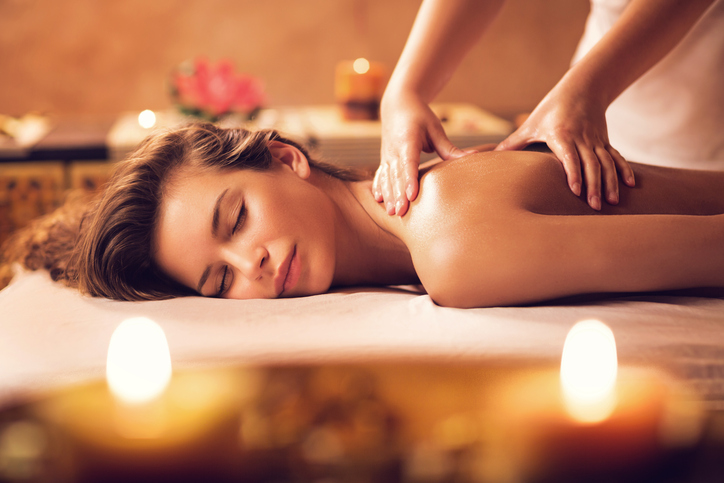
According to a recent poll from the American Psychiatric Association, nearly 40 percent of Americans are more anxious than they were exactly one year ago, which is extremely worrying.
Putting the reasons for this increase in anxiety aside, let’s talk about what people are doing to relieve their anxiety: Taking tons of prescription sedatives, which is not a good thing.
Obviously, if you really need it, prescriptions are a godsend, but it’s always best to find natural remedies instead of using pharmaceuticals since they’re all a double-edged sword. While they help with one symptom, they may cause another.
So, if you struggle with anxiety or panic disorders—and since we all get stressed out every now and then—here are 10 natural ways to relieve anxiety, backed by science.
1. Breathe Deeply

Every single relaxation method out there, like meditation, yoga, and hypnosis, emphasizes how important breathing and breath regulation is, so it’s not surprising that the first line of defense when it comes to naturally relieving anxiety is deep breathing.
One of the most common symptoms of anxiety and all panic disorders is feeling like you can’t breathe, so here’s one breathing exercise that’s virtually guaranteed to calm your anxiety in a matter of minutes, as explained by anxietycoach.com:
1. Place one hand just above your belt line, and the other on your chest, right over the breastbone. You can use your hands as a simple biofeedback device. Your hands will tell you what part of your body, and what muscles, you are using to breathe.
2. Open your mouth and gently sigh, as if someone had just told you something really annoying. As you do, let your shoulders and the muscles of your upper body relax, down, with the exhale. The point of the sigh is not to completely empty your lungs. It’s just to relax the muscles of your upper body.
3. Close your mouth and pause for a few seconds.
4. Keep your mouth closed and inhale slowly through your nose by pushing your stomach out. The movement of your stomach precedes the inhalation by just the tiniest fraction of a second, because it’s this motion which is pulling the air in. When you’ve inhaled as much air as you can comfortably (without throwing your upper body into it), just stop. You’re finished with that inhale.
5. Pause. How long? You decide. I’m not going to give you a specific count, because everybody counts at a different rate, and everybody has different size lungs. Pause briefly for whatever time feels comfortable. However, be aware that when you breathe this way, you are taking larger breaths than you’re used to. For this reason, it’s necessary to breathe more slowly than you’re used to. If you breathe at the same rate you use with your small, shallow breaths, you will probably feel a little lightheaded from over breathing, and it might make you yawn. Neither is harmful. They’re just signals to slow down. Follow them!
6. Open your mouth. Exhale through your mouth by pulling your belly in.
7. Pause.
8. Continue with Steps 4-7.
2. Use essential oils
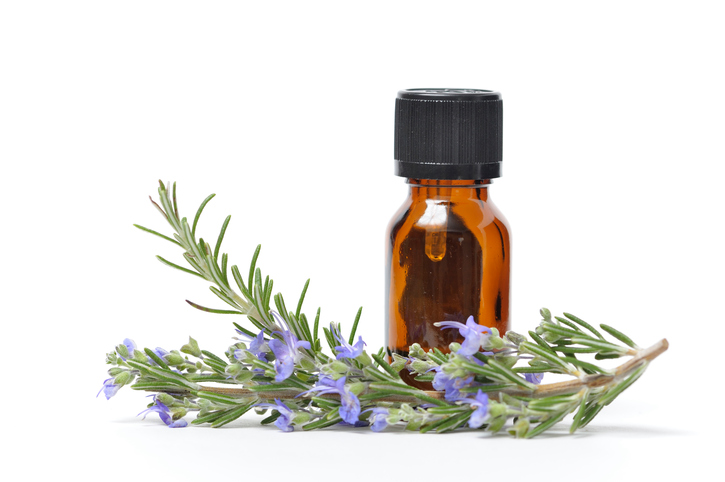
Essential oils like lavender and chamomile are scientifically proven to relieve anxiety, so before you reach for your Xanax, give essential oils a try.
“Lavender oil has been shown to reduce anxiety and help relax the body,” says natural medicine doctor, chiropractor, and clinical nutritionist Dr. Josh Axe. “A multi-center, double-blind, randomized study conducted in Germany found that Silexan, an oral lavender oil capsule, was just as effective as benzodiazepine, anti-anxiety medication that usually induces sedation and had a high potential for drug abuse.
Furthermore, “a study published in Alternative Therapies in Health and Medicine found that when chamomile oil is taken orally, it causes a significant reduction of anxiety and depression symptoms when compared to a placebo,” he adds.
3. Put down the coffee
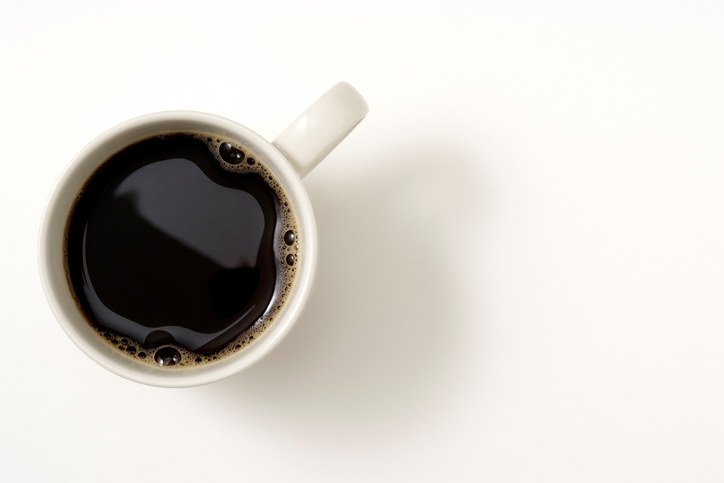
Caffeine in excessive amounts is definitely not good for anxiety, so if you’re not feeling too good, you might want to give your morning cup of joe a break for a while…or for good.
According to one study, consuming large amounts of caffeine can straight up induce anxiety even if you feel perfectly fine, and people who tend to experience social anxiety or have a panic disorder are particularly susceptible to the ill effects of caffeine.
4. Try CBD oil
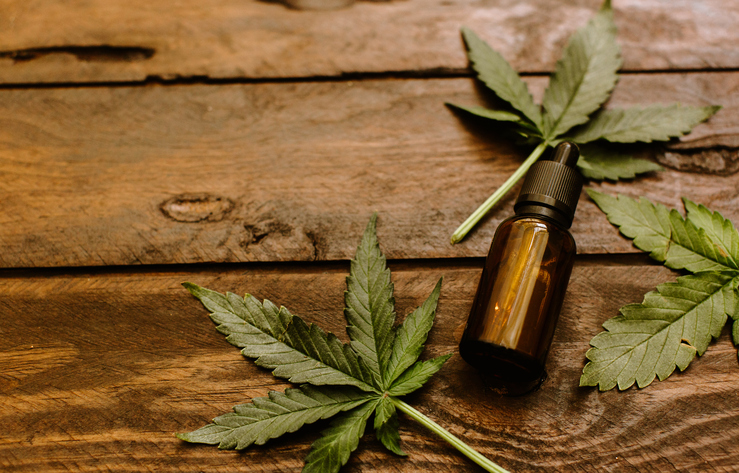
CBD oil is the hot new remedy for anxiety, and for good reason. Numerous studies have shown that cannabinoids work wonders for anxiety through various mechanisms, like inhibiting certain neurotransmitters that can make you anxious.
Brazilian researchers conducted a small double-blind study of patients afflicted with generalized social anxiety. After consuming CBD, participants reported a significant decrease in anxiety. Researchers validated patients’ subjective reports by performing brain scans showing cerebral blood flow patterns consistent with an anti-anxiety effect.
In another small study, researchers had patients suffering from Social Anxiety Disorder perform a simulated public speaking test. Participants reported significantly less anxiety, findings supported by objective anxiety indicators like heart rate and blood pressure.
Researchers concluded, “[CBD] significantly reduced anxiety, cognitive impairment, and discomfort in their speech performance,” whereas the placebo group experienced “higher anxiety, cognitive impairment, [and] discomfort.”
5. Avoid sugar and processed foods
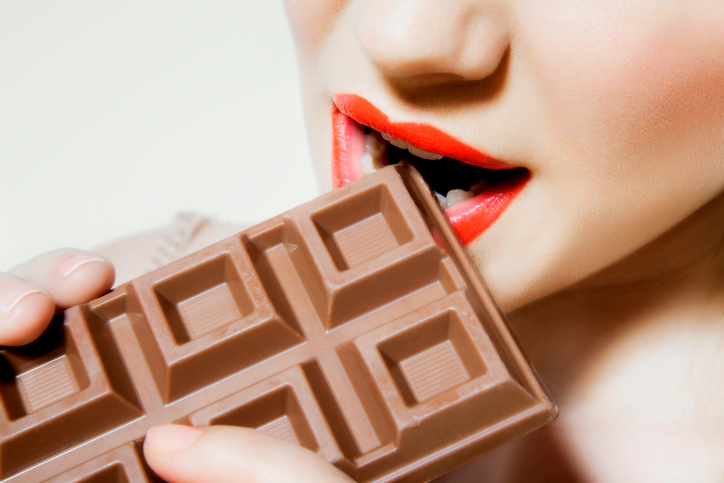
In order to relieve anxiety and keep it away forever, I can’t stress enough how important it is limit sugar and processed foods.
Sugar and refined carbs found in processed and packaged foods cause your blood sugar to spike and then dip, which increases anxiety, makes you fatigued, and causes debilitating mood swings. Plus, if you keep eating foods that cause blood sugar fluctuations, it makes it near impossible to keep your anxiety under control.
But aside from that, these foods also contribute to inflammation in the body, as well as keep your neurotransmitters from functioning properly. As you can imagine, these are all very bad for managing symptoms.
With that said, stay away from refined foods like cakes and cookies, sodas, refined grains, fast and fried foods, and processed meats.
6. Meditate
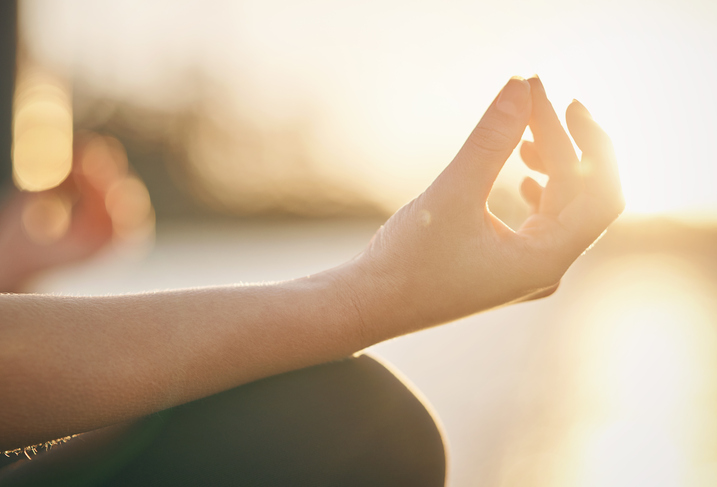
A study titled Neural Correlates of Mindfulness Meditation-Related Anxiety Relief from researchers at Wake Forest Baptist Medical Center discovered that meditation actually relieves anxiety at a neural level, and might help to reverse it completely.
The researchers found that with each meditation session, the anxiety levels of the participants was significantly reduced, and “brain imaging found that meditation-related anxiety relief was associated with activation of the anterior cingulate cortex, ventromedial prefrontal cortex, and anterior insula. These areas of the brain are involved with executive function and the control of worrying. Meditation-related activation of these three regions was directly linked to anxiety relief,” Psychology Today explains.
7. Get a massage
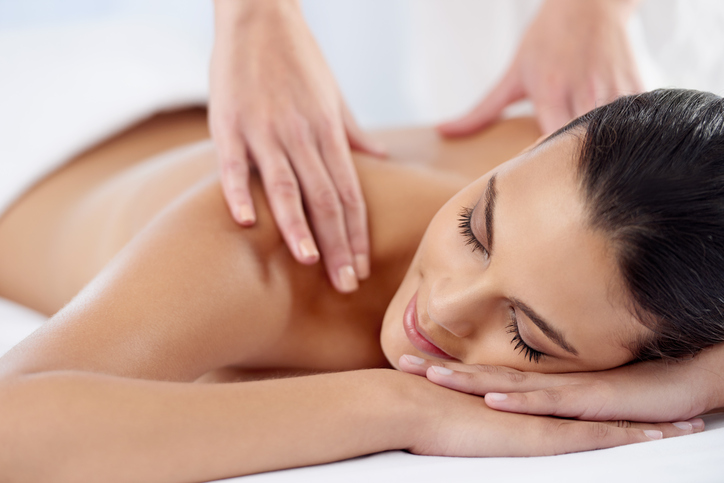
According to the Sage Institute of Massage, getting a massage can basically cure you of your anxiety, even if only for the time being.
Massages relieve anxiety by encouraging deep breathing, removing excess stimuli that can induce anxiety, provides a soothing human touch, and is a type of meditation in and of itself, which is, as we just said, an incredibly powerful remedy for anxiety.
8. Take the right supplements

Certain supplements are fantastic for anxiety, like ashwagandha, kava root, 5-HTP, GABA, magnesium, and a good vitamin B complex.
With ashwagandha, for example, a systematic review of data on the effectiveness of ashwagandha found that regular use of ashwagandha led to a significant improvement in anxiety symptoms.
Moreover, on the topic of kava as a treatment for anxiety, Josh Axe explains that “a randomized controlled trial conducted in Australia found that kava can be considered a first-line therapy for generalized anxiety disorder and it’s shown to be safe for people undergoing treatment.”
9. Get active
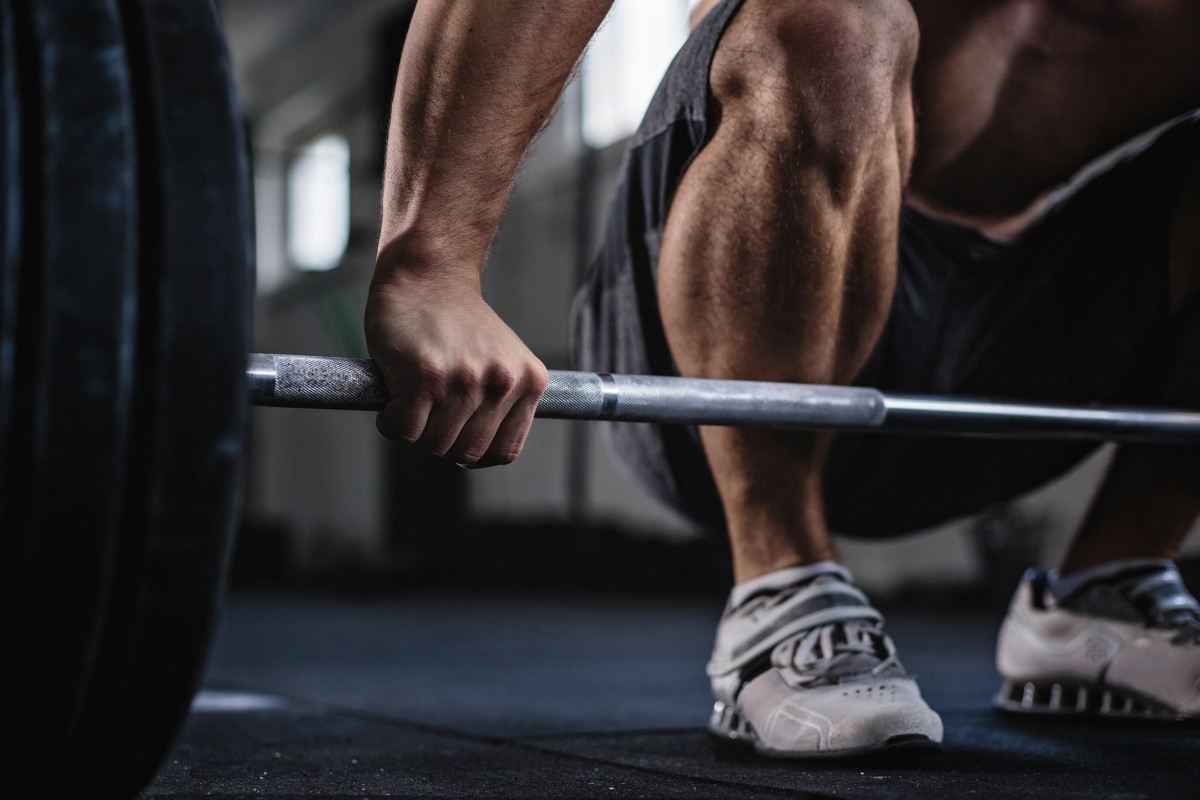
Apparently, physical activity as simple as a 10-minute walk is as beneficial as a 45-minute grueling workout for relieving anxiety, says the Anxiety and Depression Association of America (ADAA).
“Some studies show that exercise can work quickly to elevate depressed mood in many people. Although the effects may be temporary, they demonstrate that a brisk walk or other simple activity can deliver several hours of relief, similar to taking an aspirin for a headache.
“Science has also provided some evidence that physically active people have lower rates of anxiety and depression than sedentary people. Exercise may improve mental health by helping the brain cope better with stress. In one study, researchers found that those who got regular vigorous exercise were 25 percent less likely to develop depression or an anxiety disorder over the next five years,” they explain.
10. Eat a clean and balanced diet
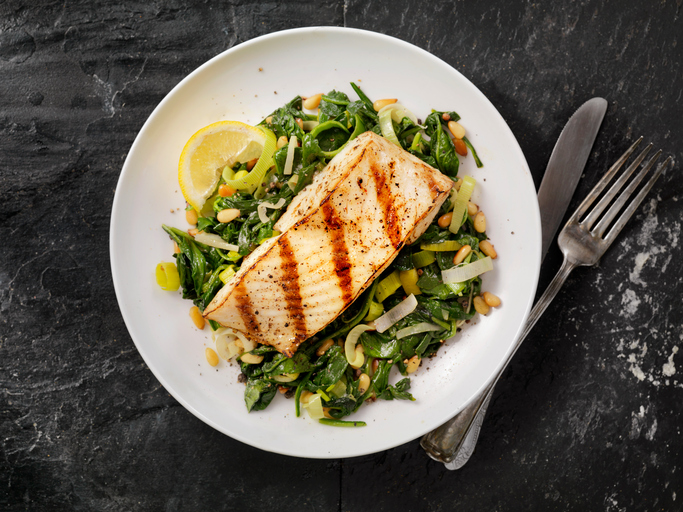
We all know what we eat has basically everything to do with how we feel. Where anxiety is concerned, consuming too little calories puts the body into starvation mode, which will definitely generate anxiety, as well as other psychological disorders.
Additionally, as I explained before, a poor diet makes your blood sugar wonky and causes spikes and dips, which cause anxiety, jitters, and nervousness. So, it’s super important to eat a healthy diet with good fats, protein, and a moderate amount of carbohydrates.
Furthermore, according to Dr. Axe, “eating anti-inflammatory foods can be a natural remedy for anxiety because they are important for neurotransmitters synthesizing and balancing your mood and stress response.”
“In addition,” he continues, “it’s also important to eat healthy fats, unrefined carbohydrates and lean protein. To improve anxiety symptoms, make sure to add vitamin B foods, magnesium rich foods, foods high in calcium and omega-3 foods to your diet too.”
